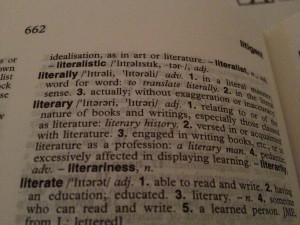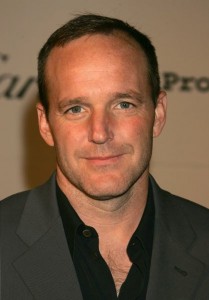 Buzz Worthy News
Buzz Worthy News
This week in Buzz Worthy News, the Lambda finalists have been revealed, VIDA’s latest stats on women in literary magazines are out – prepare your noose in anticipation, Amazon is stepping on everyone’s toes again, and Random House is dipping its toes into the pool of EVILITY! All this and more, waiting for you to check it out!
Buzz Worthy News is Cuddlebuggery’s weekly news post bringing you all the best information about the book and blogging world, particularly for the venn diagram of people who overlap between the two. For new releases and cover reveals of all the best Young Adult fiction, check out our Sunday post: How New Titles.
Books
 Finalists for the Lambda unveiled
Finalists for the Lambda unveiled
The Lambda finalists for 2012 have been revealed and the list looks very promising. The very positive news is that the Lambda foundation experienced a record number of submissions to the awards.
“Lambda Literary Foundation set a new record in 2013 for both the number of LGBT books submitted for Lammy consideration, 687, and the number of publishers participating, 332. This beats the record-setting numbers in 2012 of 600 titles by over 250 publishers and is the fourth consecutive year of growth in submissions and publishers.”
LGBT ANTHOLOGY
- For Colored Boys by Keith Boykin
- Here Come the Brides!: Reflections on Lesbian Love & Marriage edited by Audrey Bilger & Michele Kort
- No Straight Lines: Four Decades of Queer Comics edited by Justin Hall
- Why Are Faggots So Afraid of Faggots? Flaming Challenges to Masculinity, Objectification & the Desire to Conform edited by Mattilda Bernstein Sycamore
LGBT CHILDREN’S/YOUNG ADULT
- Adaptation by Malinda Lo
- The Adventure of Tulip, Birthday Wish Fairy by S. Bear Bergman & illustrated by Suzy Malik
- Aristotle and Dante Discover the Secrets of the Universe by Benjamin Alire Saenz
- Ask the Passengers by A.S. King
- Beautiful Music for Ugly Children by Kirstin Cronn-Mills
- Every Day by David Levithan
- Kiss the Morning Star by Elissa Janine Hoole
- The Miseducation of Cameron Post by emily m. danforth
- Personal Effects by E.M. Kokie
- Silhouette of a Sparrow by Molly Beth Griffin
LGBT DEBUT FICTION
- Desire: Tales of New Orleans by William Sterling Walker
- The Dream of Doctor Bantam by Jeanne Thornton
- The Evening Hour by Carter Sickels
- Incidental Music by Lydia Perovic
- Love, In Theory: Ten Stories by E.J. Levy
- Makara: a novel by Kristen Ringman
- Monstress by Lysley Tenorio
- People Who Disappear by Alex Leslie
- The Summer We Got Free by Mia McKenzie
- Three Cubic Feet by Lania Knight
 The Dictionary is Literally Awesome
The Dictionary is Literally Awesome
Literally. Don’t you just love it? I literally use it a hundred, billion times a day. Because I’m awesome like that. But did you know there’s a bunch of weirdos who literally go ballistic if you don’t use literally in a… well, literal way. Even though it has been used as a literary embellishment as a stand-in for figuratively for a considerable amount of time.
An article in galleycat reminded me of why I love to use literally in every way that annoys grammar sticklers.
“Reddit reader andtheniansaid shared three separate dictionary definitions that include this informal usage, arguing that “it is okay to use the word ‘literally’ for emphasis.”
Here are three major dictionaries that mention the exaggerated “literally” usage…
Merriam-Webster Dictionary added a second “virtually” sense for the word, explaining with this note: “Since some people take sense 2 to be the opposite of sense 1, it has been frequently criticized as a misuse. Instead, the use is pure hyperbole intended to gain emphasis, but it often appears in contexts where no additional emphasis is necessary.”
Cambridge Dictionaries Online added this informal usage to its definition: “used to emphasize what you are saying: He missed that kick literally by miles. I was literally bowled over by the news.”
Oxford Dictionaries begrudgingly admitted the shift: “In recent years an extended use of literally (and also literal) has become very common, where literally (or literal) is used deliberately in non-literal contexts, for added effect, as in they bought the car and literally ran it into the ground. This use can lead to unintentional humorous effects (we were literally killing ourselves laughing) and is not acceptable in formal contexts, though it is widespread.””
Publishing
 This year’s VIDA Stats May Cause You To Hate The World
This year’s VIDA Stats May Cause You To Hate The World
Last year VIDA’s statistics are out and, in most cases, they’re worse than even last year. And if you don’t remember, last year’s stats were pretty bad.
“VIDA was founded in August 2009 to address the need for female writers of literature to engage in conversations regarding the critical reception of women’s creative writing in our current culture.
VIDA’s structure is “grass-roots.” The individuals presently involved in creating VIDA are spread across the country, represent different identities, work from within a range of aesthetics, and share the common goal to create a forum at which all women writers may engage in much longed for conversations about literature being produced by women and its reception by the larger culture.”
Companies like The New Yorker had 28 male book reviewers last year and 3 women. As horrible as that is, it’s worse than the year before when it was 23 male book reviewers to 10 women. A few publications, though, have made definite strides to trying to improving the ratios of book reviewers, book reviews of women’s literature and the gender of authors interviewed.
“Let’s look at a few venues that have held steady or made calculable strides towards shaping a more egalitarian literary landscape via gender. The Boston Review, with its slightly heavier load of male reviewers, has made a dramatic improvement proportionately of who they review since we began. Threepenny is taking a slow but steady approach with incremental yearly steps up from 29 to 34 to 36.5% women published respectively. Poetry remains the most consistently equitable in its publishing practices, reaching a 45% height of women published in 2012: look to the poets! … We hope their editors will take notice and figure out how to make lasting strides as they proceed with their consideration practices into the rest of 2013. Publishers have also begun to take it upon themselves to publicly account for their own numbers. Places like Harvard Review, Drunken Boat and Tin House are counting their authors each year. We do not think the significant jump in female authors reviewed at Tin House is temporary; they have bared the change in their attention and practices for the public record. Readers and writers, please take note.”
You can go here to check the three-year trend in each publication for yourself.
 Amazon Wants .Book Domain Name and AAP Ain’t Happy About It
Amazon Wants .Book Domain Name and AAP Ain’t Happy About It
Amazon, Amazon, Amazon. Like an overzealous suitor who never heard the word boundaries. The closed Generic Top-Level Domain names are up for grabs and guess who made a bid? Amazon, Amazon, Amazon. Who can blame you? Clearly their bid for the name was highly contested and condemned by the AAP.
“In short, Amazon makes clear that it seeks exclusive control of the “.book” string solely for its own business purposes, notwithstanding the broad range of other companies, organizations and individuals that have diverse interests in the use of this gTLD or its second-level domains by others or themselves. AAP believes that ICANN approval of such an application would not be in the public interest.”
So who exactly is making a bid for the lucrative domain?
1) Annie Callanan, last known as COO of ProQuest — sister company of R.R. Bowker (which are both owned by Cambridge Information Group) — applies as an entity with partners, separately from Bowker’s application. If she is still a ProQuest employee, this is a conflict of interest and could also be seen as double-dipping since both ProQuest and Bowker are owned by the same parent.
2) Amazon wants the entire dotBOOK domain for itself! Really, no one else can use it except Amazon.
3) Bowker has a plan to make a mint off dotBOOK with auctions of certain URLs — which could actually be an infinite list of URLs
4) Everyone else just wants to make a buck off writers and at least one of them openly hates self-publishers — and probably independent small presses too
The following is in the order of applicants on the ICANN list here. – SOURCE
The Authors Guild and the Association of American Publishers have objected saying that Amazon’s ownership of such domains would be a threat to competition.

Barnes & Noble filed an objection with ICANN saying that Amazon could stifle competition.
Amazon’s public plans for the new Web addresses seem pretty vague right now. Saying only that the name will, “provide a unique and dedicated platform for Amazon while simultaneously protecting the integrity of its brand and reputation.” (SOURCE) Whilst a report leaking its private plans entail their desire to have dominion over all the world and subject humanity as its slaves.
 Should Chairs Have DRM Too?
Should Chairs Have DRM Too?
Books have DRM (Unless the publisher is awesome like Macmillan and went, “Fuck that shit!” Can’t they all be like that?) So what would happen if everything had DRM? What happened if the chair you were sitting in right now had DRM, and only lasted as long as the manufacturer allowed you to keep it? Graphic Designer Thibault Brevet set out to show, albeit in a somewhat more boring manner than I would have chosen, what life would be like. Short story: it would suck if every product came with DRM.
“The DRM Chair has only a limited number of use before it self-destructs. The number of use was set to 8, so everyone could sit down and enjoy a single time (sic) the chair. A small sensor detects when someone sits and decrements a counter. Every time someone sits up, the chair knocks a number of time to signal how many uses are left. When reaching zero, the self-destruct system is turned on and the structural joints of the chair are melted.”
Some libraries are already furious at the DRM set by publishers like HarperCollins, which they are protesting.
Image by Xessencex
 Random House Could Be Evil
Random House Could Be Evil
John Scalzi came out swinging at the emergence of an author contract from Hydra, an electronic-only imprint of Random House, with terms that were just this side of horrific.
* No advance.
* The author is charged “set-up costs” for editing, artwork, sale, marketing, publicity — i.e., all the costs a publisher is has been expected to bear. The “good news” is that the author is not charged up front for these; they’re taken out of the backend. If the book is ever published in paper, costs are deducted for those, too.
* The contract asks for primary and subsidiary rights for the term of copyright.
Writer Beware notes, appropriately, that this information comes from only one deal sheet it’s seen from Hydra. But, you know what: One attempt at this sort of appalling, rapacious behavior on the part of Random House is bad enough.
He goes on to explain why those terms are so entirely, outrageously insane. And I should add that his explanation is rather beautiful. Like the summer sun, focused through a magnifying glass and burning ants.
In response, The Science Fiction and Fantasy Writers of America attacked Hydra and removed it from its list of publishers – thus any Hydra authors won’t qualify for SFWA membership. This caused Allison Dobson, Random House’s digital publishing director, to write to the SFWA calling them complete be-yotches and that, like, Random House is awesome, y’all!
“We read with interest your posts today about the new Random House digital imprints and our business model. While we respect your position, you’ll not be surprised to learn that we strongly disagree with it, and wish you had contacted us before you published your posts. We would appreciate you giving us an opportunity to share why we believe Hydra is an excellent publishing opportunity for the science fiction community by posting ours below to them.”
Entertainment
Much Ado About Nothing gets the Whedon Treatment
Alongside A Midsummer Night’s Dream, Much Ado About Nothing is one of my favourite Shakespeare plays – so Whedon had better of nailed it. Whedon’s adaptation is already accruing an avalanche of critical praise, but I so loved Emma Thompson as Beatrice that I’m having a harder time getting enthusiastic than I should.
The has a lot of Whedon staple actors including:
Fred as Beatrice
Wesley as Benedick
Wimpy Kid as Claudio
[/one_half]
A woman who was in a restaurant in Avengers as Hero
Agent ‘Awesome’ Phil Coulson as Leonato
[/one_half]
[one_half_last]
Dr. Simon Tan who one moonlighted as a Hunger Games director as Don Pedro the Bastard
[/one_half_last]
[one_half]
Two people who may or may not be birds are the First and Second Watchmen
[/one_half]
[one_half_last]
 And last but not least, Captain Mal who played the best Green Lantern ever and a horribly awesome Captain Hammer, and solves crimes for his novels when he’s not bonding with evil to try and defeat Buffy as Dogberry. Who is an ass.
And last but not least, Captain Mal who played the best Green Lantern ever and a horribly awesome Captain Hammer, and solves crimes for his novels when he’s not bonding with evil to try and defeat Buffy as Dogberry. Who is an ass.
[/one_half_last]
The trailer for the movie, which is released on June 7th 2013:
I’m most excited to see Nathan Fillion and the first and second Watchmen. If you don’t recognize Nick Kocher and Brian McElhaney then you clearly haven’t been watching your BriTANick enough! Obviously Joss Whedon is also a fan because he appears in this video with them here:
Despite all the critical praise, acclaim and fangirling happening over this CLEARLY awesome movie – I would like to remind everyone that Joss Whedon shot this for fun, in his own home, after wrapping up Avengers. It’s like he doesn’t even have to try these days, guys!
Controversy
 Juliet Marillier Shouts at Readers to Get Off Her Lawn
Juliet Marillier Shouts at Readers to Get Off Her Lawn
*Warning*
Only read further if you are not a massive fan of Juliet Marillier’s work. Other wise we can not be held accountable for the emotional trauma that may occur from discovering that she has opinions and that she may or may not throw cats at children playing near her home.
This week, Marillier wrote a piece about how fans should and shouldn’t write to authors, using an example of a letter recently sent to her by an excited fan urging Marillier to write faster. Marillier was taken aback at the email and rewrote in more in the manner of an email she might like to receive. You can see a screencap of the email here. The post was originally here but was removed by the website after the deluge of complaints.
Marillier apologized on the Facebook page not long ago. I will still read and love her work, though, because she IS magical. Though, you should know, she’s been my long time nemesis on Goodreads. *Shakes fist* We shall see each other in battle one day! Then perhaps she will, errr, know who I am and that we have been locked in a mortal struggle.









Heartless_Lyn
FIRST POST – YEAH!
I would hate to pull my business from Amazon. B&N already lost me as a customer forever. As it is, I sadly turn to local used bookstores and local book fairs to purchase my books. I have a Kindle, and I would hate to see Amazon turn into a greedy 2 year old who will not share.
I was sad by Marillier’s post, but her timely response to the entire thing has restored my faith. We all get cranky and mad, and I say stupid things at times as well.
It is funny that the book field is swamped by males. I see far more female readers than male readers. I think I might have 2 men on my Goodreads friends’ list.
Kate C.
Heartless_Lyn You can always buy your ebooks from Kobo!
Fangs4Fantasy
The VIDA stats make is so utterly clear why online
reviewing and blogging is so important. Like so many things the
“mainstream” and “official” and “professional” is
inevitably dominated by cis, straight, white men. One of the joys of the
internet is it gives a rare opportunity for voices that are so often ignored to
be heard; of course, I can’t help but think it’s why so much of the
professional review body has so much contempt for online reviewers.
I have been following Scalzi’s posts and tweets and am so
thankful for them – I’m less worried by one predatory contract than with this
horrible thing becoming the new industry standard, especially for ebooks. And
because, he’s right, it will lead to more pirating. The more readers feel that
the actual CREATORS of the medium are being utterly screwed, the less guilt
they feel for pirating it – if the perception is that they’re cheating the
author of pennies and denying a predatory publisher the bulk of the money then
the guilt drops.
Kate C.
I’m with F4F on the Vida thing. The reviews I read are dominated by women, and not just because I’m a woman, but because they’re great reviewers! I mean honestly, these large media sites/magazines/newspapers are doing themselves a disservice by missing out on these strong reviews.
The drama over Hydra is still going. SFWA replied to RH’s letter and basically said, “We don’t care what you say, your contracts are still evil.” My opinion, which is biased as an indie, is that it’s not so big a deal to expect authors to pay back ITEMIZED costs of putting a book out. It’s not even such a big deal to say, “Hey, this will have no advance.” I don’t get an advance from Amazon or B&N for my work. The big deal to me is then asking authors to tie up their work FOREVER with a publisher. Uh, what now? You get the rights to my book until I die??? No thanks! A year, maybe. I could even see like 5 years, depending on the costs of cover, edits, etc. But you are in a FREAKING DREAM if you think that those things and the cache of your publishing house name on a cover gets you my work forever. I’d rather do it myself. That’s like indentured servitude without terms of release. Oh yeah, I said it… SLAVE LABOR.
Poor Marillier… it must be such a burden to feel like your fans are eagerly and impatiently waiting for your next book(so much so that they go out and purchase everything you’ve ever written). If you don’t like the possibility that you might get emails that bother you, DON’T GIVE OUT YOUR EMAIL ADDRESS!!! What a slap in the face to your fans everywhere. Sheesh.
On a side note, I had to laugh at her comment that “authors don’t appreciate negative feedback”. Every SINGLE one of my stories has a post that says, “all authors appreciate feedback, whether positive or negative. Oh, and here’s my email.” LOL But I guess that’s just me. Maybe I’ve been fortunate, because even though I have received both positive and constructive feedback on my books, the people that email me are so nice. I mean, super amazingly awesome nice!
I will still read her books. She can be a grumpy pants if she wants to. 🙂 I just won’t ever email her to tell her how much I enjoy her work. hahaha
cynicalsapphire
Lambda: Record number of submissions? HOLLA! Does this mean people are getting more tolerant? *crosses fingers* I’ve only read three of the YA ones and one of the adult books, but they were all wonderful, so BOOYAH!
Literally: I do not approve.
VIDA: *is a grumpy cat*
Amazon: Does the .book domain matter? I don’t know if I get this.
DRM Chair: Bahahahahahahaha. It’s not like DRM stops people from pirating; it just punishes the people who legitimately purchase your books.
Much Ado: The trailer makes me concerned. I hope it’s less…melodramatic. Also, I’m really not sure about the casting for Benedick. It seems off, based on those clips.
AnimeGirlAlex
I’m so excited for the Much Ado About Nothing, it’s one of the few Shakespeare plays I actually like (I’m not a big fan of the bard) 😀
And I didn’t know about Juliet Marillier, I follow her books on and off.
Thanks for the new’s roundup
Susan Gabriel
Lesbian novels are a genre of fiction that almost always includes two or more protagonist female characters who are either lesbian or in the process of coming out. With over 500 + books to choose with, diverse readers are sure to be delighted with these lesbian books.
Susan Gabriel
Lesbian novels are a genre of fiction that almost always includes two or more protagonist female characters who are either lesbian or in the process of coming out. With over 500 + books to choose with, diverse readers are sure to be delighted with these lesbian books.